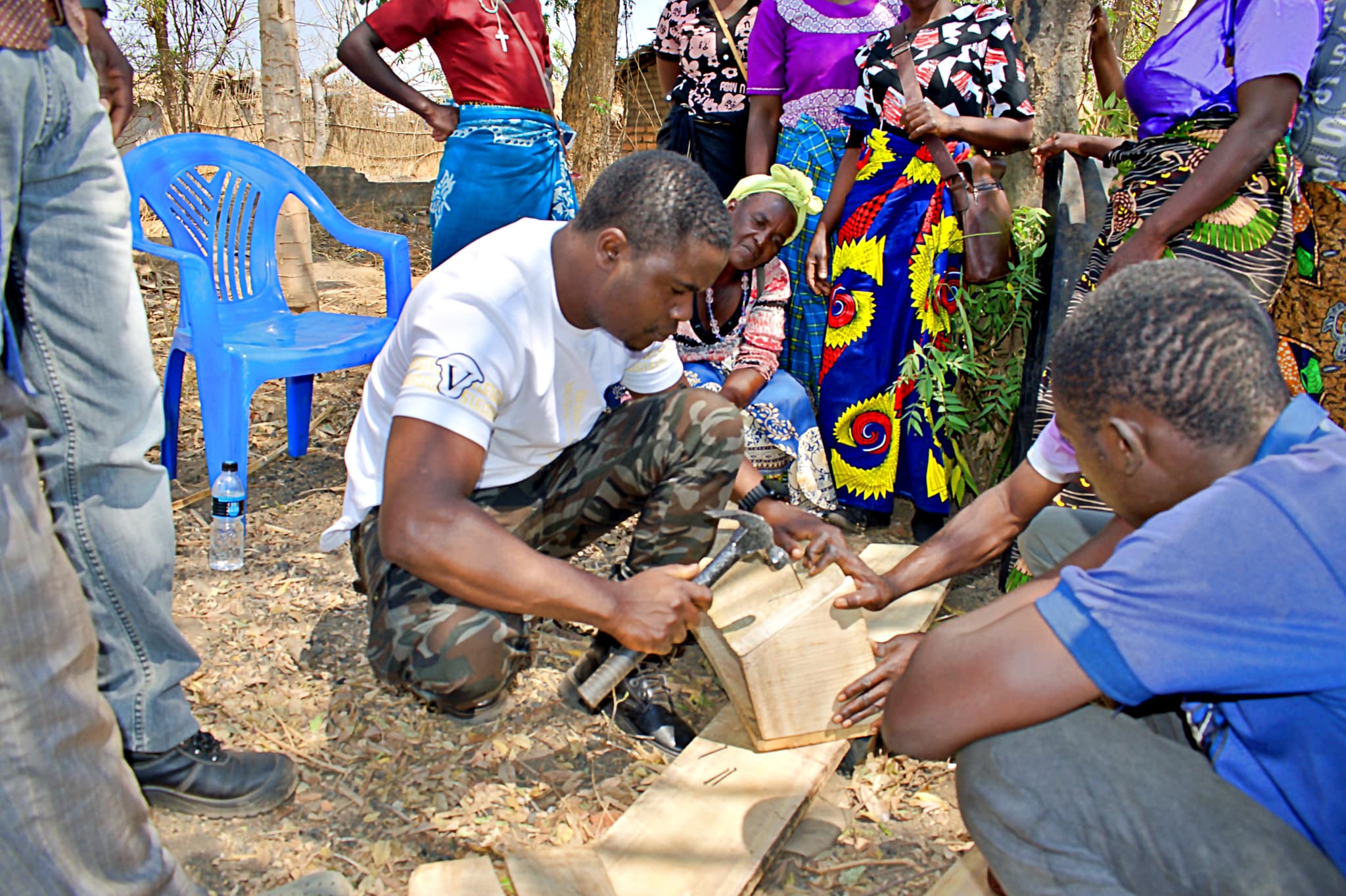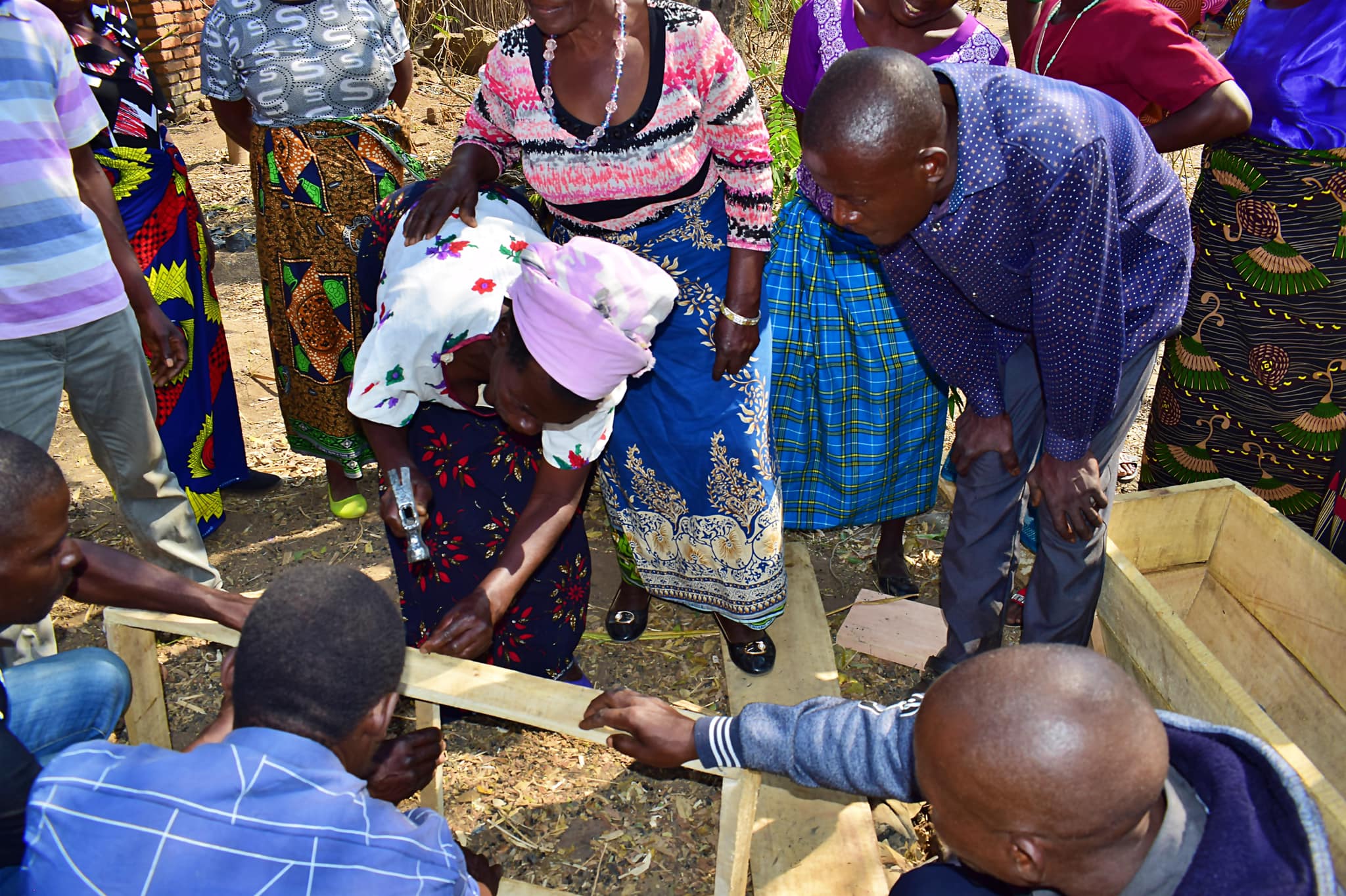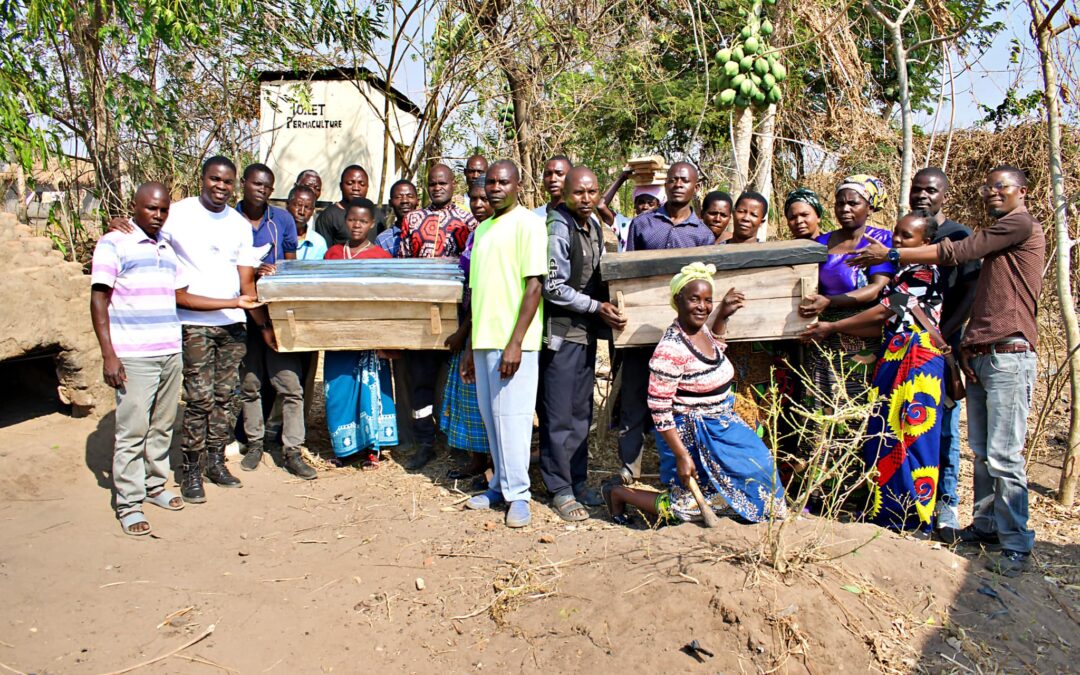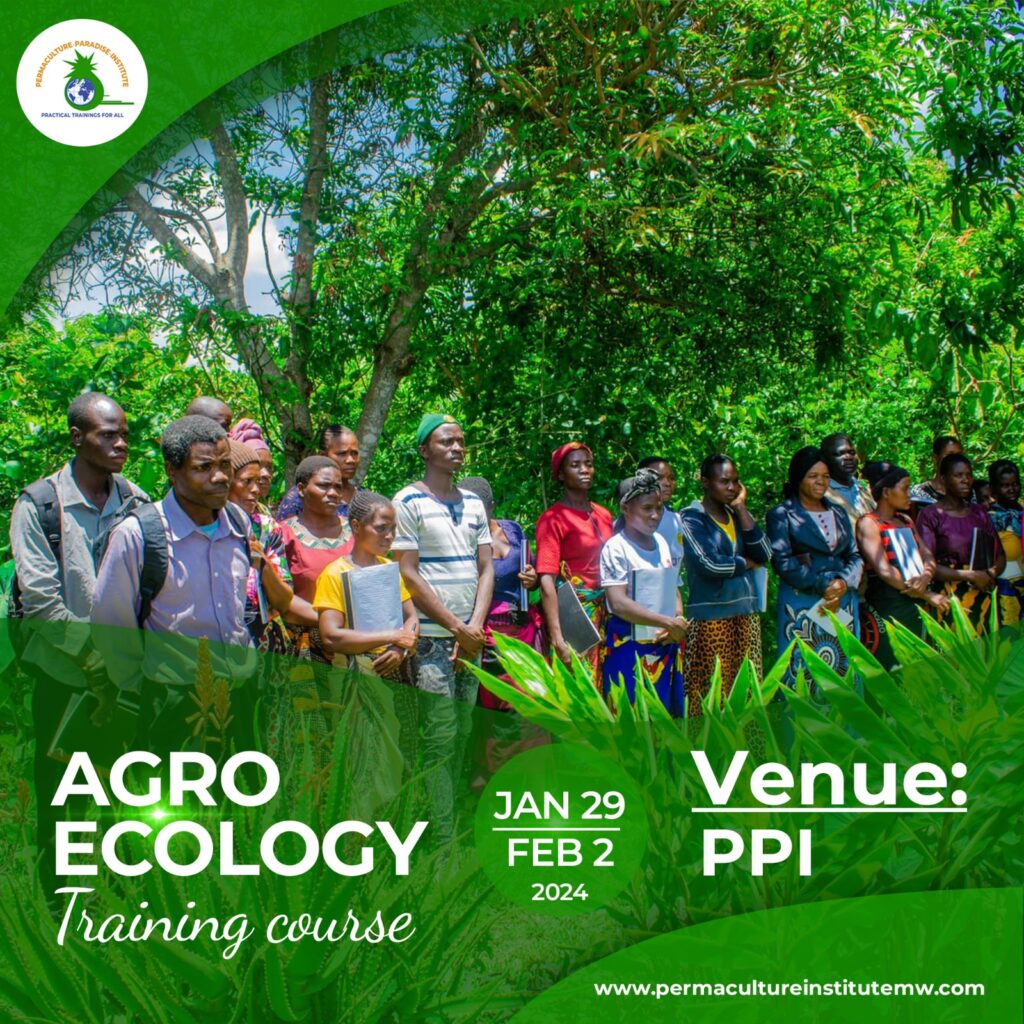Today was a hands-on experience for our farmers in Madisi Dowa as day two of the beekeeping training course took a practical turn. The focus was on one key objective: learning how to construct a simple yet effective beehive. This marked an exciting step forward for the participants, who are eager to bring the theory they’ve learned into the real world.
The session began with a fascinating exploration of the various types of beehives used globally. From traditional methods that have been passed down through generations to cutting-edge modern designs, each hive type offers unique advantages. Our trainers emphasized the importance of selecting a beehive that aligns with the farmers’ specific needs, taking into account factors such as climate, available materials, and the environment of their food forests.
As the morning progressed, the farmers were introduced to the basic principles of hive construction. They learned how to create a simple yet sturdy beehive, using readily available materials. The simplicity of the design doesn’t compromise its effectiveness, making it an ideal starting point for those new to beekeeping.
The practical session was a highlight of the day. With guidance from our trainers, the farmers rolled up their sleeves and got to work, constructing their own beehives. It was a rewarding experience, as they saw the results of their efforts come together in the form of functional hives that will soon house their bees. The farmers’ enthusiasm was palpable as they realized the impact these hives will have on their food forests.
One of the key messages of the day was the importance of setting up an entire apiary, rather than just a single hive. An apiary will not only enhance pollination within the food forests but will also create a more resilient ecosystem. The presence of bees will help boost the health and productivity of the forests, ensuring that the plants thrive and bear fruit.

Beyond the environmental benefits, the session also highlighted the economic potential of beekeeping. The honey and wax produced by these hives will be valuable resources, providing the farmers with additional income streams. Whether used for home consumption or sold commercially, these products will contribute to the financial stability of the farming communities.

As the day came to a close, the farmers reflected on the knowledge and skills they had gained. The practical experience of building their own beehives was not only empowering but also instilled a sense of accomplishment. They left the session with a deeper understanding of the role bees will play in their food forests and the potential for beekeeping to transform their livelihoods.
Tomorrow’s session will delve into hive management, where the farmers will learn how to maintain the health and productivity of their hives. The journey continues, with each day bringing them closer to becoming skilled beekeepers and stewards of their land. Stay tuned for more updates as we document the progress of these dedicated farmers on their path to sustainable agriculture.



